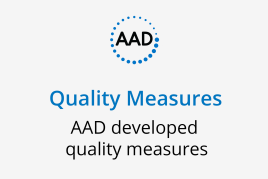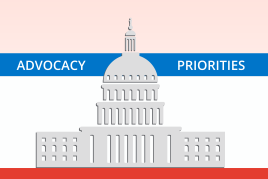Membership
Featured
 Find a Dermatologist
Find a Dermatologist
Review your profile in our search tool for the public, which helps patients find board-certified dermatologists.
 Member directory
Member directory
Make sure your contact info is up to date in our directory. This listing is for AAD members only.
Meetings & Education
Featured
 AAD Learning Center
AAD Learning Center
Explore the Academy's new and improved Learning Center, with enhanced ease of use for the education you trust.
 2025 AAD Innovation Academy
2025 AAD Innovation Academy
Join us this summer in Chicago immersing yourself in cutting-edge research and the latest advancements in dermatology.
Practice management
Featured
 Need coding help?
Need coding help?
Find practical guidance on coding issues common in dermatology practices.
 Reduce burdens
Reduce burdens
Learn how to reduce burdens with health tech.
Clinical & quality
Featured
 Clinical guidelines
Clinical guidelines
Review current clinical guidelines, those in development, and guidelines that the AAD has collaborated on.
 Why use AAD measures?
Why use AAD measures?
The Academy has developed quality measures to help your dermatology practice.
Publications & apps
Featured
 Latest news
Latest news
Read this month's top stories in Dermatology World.
 New insights
New insights
Check out DermWorld Insights & Inquiries for the latest updates from Dr. Warren Heymann
Career development
Featured
 Physician wellness
Physician wellness
Access tools and guidance on combatting burnout and fostering wellness.
 Joining or selling a practice?
Joining or selling a practice?
Get help to evaluate what practice model fits your needs, as well as guidance on selling a practice.
Advocacy
Featured
 Promote the specialty
Promote the specialty
Access resources to help you promote the specialty in your community and beyond.
 Advocacy priorities
Advocacy priorities
Learn about the Academy's advocacy priorities and how to join efforts to protect your practice.
